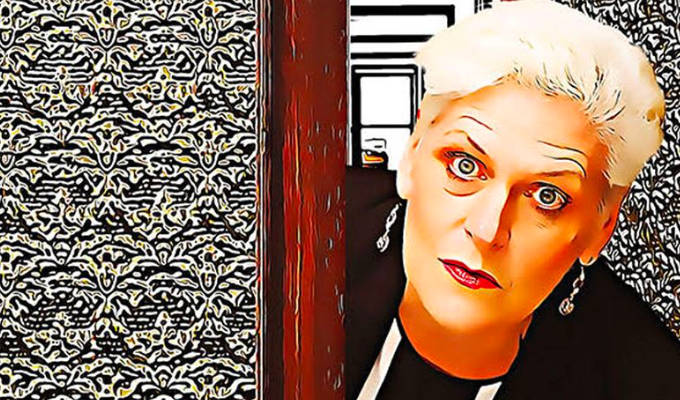
Lynn Ferguson: Storyland
Edinburgh Fringe comedy review
Making a decent fist of arguing for the pre-eminence of storytelling, Lynn Ferguson offers up a solidly amusing hour of well-structured anecdotes with ambitions for greater profundity.
Following an informal preamble, in which she gently needles her tech and establishes the casualness with which she'll switch between storytelling registers, either illustratively by her slide projector, slightly more intensely sat on a stool in a spotlight or just directly stood in front of the crowd in conversational-style chat, the always personable Ferguson bookends her hour with a memory of a long-dead neighbour from her upbringing in 1970s Cumbernauld.
Beyond a propensity for fixing things and delight in terrible jokes, there was nothing remarkable about the man, forgotten by history, save for an amusing, unlikely incident that he and the young Ferguson were witness to. Ruminating on it now, the writer advocates that we can't dictate fate, but we can dictate who tells our stories and how our stories are told.
There's some irony in her celebrating the subjectivity of individual perspectives, by using the example that there will never be another Mozart, as it's exactly the same example used by her older brother Craig, whom she's consistently written for, in one of his previous stand-up shows.
Still, she capably makes the point that if we don't cultivate our memories, or indeed voice our principles, they will go unheard.
Ferguson's down-to-earth manner belies the fact that she's very much casting her art in an oral tradition stretching back beyond the invention of the printing press. It's an appealing clash of the academic with the folksy, as she introduces her husband, sons and their life in Los Angeles acquiring countless animals over lockdown, but in a certain light, not so different to her formative years in Scotland.
Having co-written the 2017 Fringe show Sam Shaber: Life, Death & Duran Duran, about three people the American singer-songwriter had die on her, Ferguson was intimately aware of how one of Shaber's friends had passed away, but not without slightly changing the course of medical history.
This was to prove massive when Ferguson found herself staring death in the face, a perfect example of oral testimony prolonging the species, or at least her individual life. The story is shared with stoic, self-mocking humour, with Ferguson more concerned about looking after her audience than burnishing the appearance of her own bravery, but nevertheless you feel powerfully the impact it had on her and her loved ones, her boys mere teenagers at the time.
To this, she adds another tale, a domestic tableau crystallised in time. It's a shared experience, but one whose memory is coloured for her by pathos, but for her poor husband more by his indignity, both of having something removed from an intimate part of his body, and subsequently, with the toddler-style stick drawings he's provided to illustrate it.
From these fond expressions of love, Ferguson reiterates her argument for standing up for one's own stories, of resisting the powers-that-be from imposing and cementing their own narratives, those who would monster migrants or scapegoat Meghan Markle as the source of all the world's ills. It's an admirable sentiment, if a little clunkily expressed, certainly in comparison to the understated ease with which Ferguson has shared her personal anecdotes.
No great matter though, because your abiding memory of Storyland will be the name she borrowed for the malevolence that invaded her body and threatened her life, removing its power and dignity by christening it after a Markle-hounding, tabloid blowhard, who could probably do with having his stories drowned out for a while.
Review date: 23 Aug 2023
Reviewed by: Jay Richardson
Reviewed at:
Gilded Balloon Teviot








